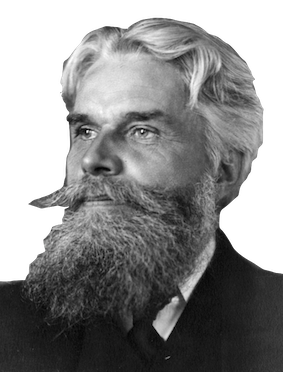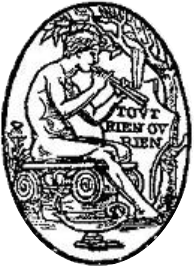
ハヴロック・エリスと優生学
Henry Havelock Ellis and Eugenics

ヘンリー・ハヴロック・エリス(1859年2月2日 - 1939年7月8日)は、イギリスの医師、優生学者、作家、進歩的知識人、社会改革者で、人間のセクシュアリティを研究した。彼は優生学を支持し、 1909年から1912年まで優生学会の16人の副会長の1人として活 躍した。
| Henry Havelock
Ellis
(2 February 1859 – 8 July 1939) was an English physician, eugenicist,
writer, progressive intellectual and social reformer who studied human
sexuality. He co-wrote the first medical textbook in English on
homosexuality in 1897, and also published works on a variety of sexual
practices and inclinations, as well as on transgender psychology. He is
creditedwith introducing the notions of narcissism and autoeroticism,
later adopted by psychoanalysis. Ellis was among the pioneering investigators of psychedelic drugs and the author of one of the first written reports to the public about an experience with mescaline, which he conducted on himself in 1896. He supported eugenics and served as one of 16 vice-presidents of the Eugenics Society from 1909 to 1912.[1] |
ヘンリー・ハヴロック・エリス(1859年2月2日 -
1939年7月8日)は、イギリスの医師、優生学者、作家、進歩的知識人、社会改革者で、人間のセクシュアリティを研究した。1897年に同性愛に関する
英語初の医学書を共同執筆したほか、さまざまな性行為や性癖、トランスジェンダー心理学に関する著作を発表した。また、後に精神分析で採用されることにな
るナルシシズムや自己エロティシズムという概念を導入したことでも知られている。 エリスは、サイケデリック薬物の先駆的な研究者の一人であり、1896年に自ら行ったメスカリンの体験について、一般向けに書かれた最初の報告書の著者の 一人であった。彼は優生学を支持し、1909年から1912年まで優生学会の16人の副会長の1人として活躍した[1]。 |
| Medicine and psychology Ellis returned to England in April 1879. He had decided to take up the study of sex and felt his first step must be to qualify as a physician. He studied at St Thomas's Hospital Medical School, now part of King's College London, but never had a regular medical practice. His training was aided by a small legacy[4] and also income earned from editing works in the Mermaid Series of lesser known Elizabethan and Jacobean drama.[4] He joined The Fellowship of the New Life in 1883, meeting other social reformers Eleanor Marx, Edward Carpenter and George Bernard Shaw. The 1897 English translation of Ellis's book Sexual Inversion, co-authored with John Addington Symonds and originally published in German in 1896, was the first English medical textbook on homosexuality.[5][6] It describes male homosexual relations as well as adolescent rape. Ellis wrote the first objective study of homosexuality, as he did not characterise it as a disease, immoral, or a crime. The work assumes that same-sex love transcended age taboos as well as gender taboo. The work also uses the term bisexual throughout[7].The first edition of the book was bought-out by the executor of Symond's estate, who forbade any mention of Symonds in the second edition.[8] In 1897 a bookseller was prosecuted for stocking Ellis's book. Although the term homosexual is attributed to Ellis,[citation needed] he wrote in 1897, "'Homosexual' is a barbarously hybrid word, and I claim no responsibility for it."[9] In fact, the word homosexual was coined in 1868 by the Hungarian author Karl-Maria Kertbeny.[10] Ellis may have developed psychological concepts of autoeroticism and narcissism, both of which were later developed further by Sigmund Freud.[11] Ellis's influence may have reached Radclyffe Hall, who would have been about 17 years old at the time Sexual Inversion was published. She later referred to herself as a sexual invert and wrote of female "sexual inverts" in Miss Ogilvy Finds Herself and The Well of Loneliness. When Ellis bowed out as the star witness in the trial of The Well of Loneliness on 14 May 1928, Norman Haire was set to replace him but no witnesses were called.[12] |
医学と心理学 1879年4月、エリスは(オーストラリアから)イギリスに帰国した。エリスは、1879年4月にイギリスに戻り、性の研究に取り組むことを決意し、その 第一歩として医師免許を取得することを考えました。セント・トーマス病院医学校(現在はキングス・カレッジ・ロンドンの一部)で学んだが、通常の診療を行 うことはなかった。1883年に新生活研究会に入会し、社会改革者のエレノア・マークス、エドワード・カーペンター、ジョージ・バーナード・ショーらと知 り合った[4]。 1897年にジョン・アディントン・シモンズと共著で1896年にドイツ語で出版されたエリスの著書『Sexual Inversion』の英訳版は、同性愛に関する最初の英語の医学教科書となった[5][6]。 同書には男性の同性愛関係や青年期のレイプについて書かれている。エリスは、同性愛を病気、不道徳、犯罪と決めつけず、初めて客観的な研究を書いた。この 作品では、同性間の恋愛は、年齢のタブーや性別のタブーを超越していると仮定している。また、この作品は全体を通してバイセクシュアルという言葉を使用し ている[7]。この本の初版はシモンドの遺産執行人によって買い取られ、第2版ではシモンドに関するいかなる言及も禁じられた[8]。 1897年、ある書店がエリスの本を仕入れたことで起訴された。同性愛という言葉はエリスのものとされているが[citation needed]、彼は1897年に「『同性愛』は野蛮な混成語であり、私はその責任を負わない」と書いている[9] 実際、同性愛という言葉は1868年にハンガリーの作家カール=マリア・ケルトベニーによって作られた[10] 。 エリスは、後にジークムント・フロイトがさらに発展させた自己エロティシズムとナルシシズムという心理学的概念を発展させたかもしれない[11]。エリス の影響は、『性的倒錯』が出版された時点で17歳程度であったラドクリフ・ホールに届いたかもしれない。彼女は後に自分自身を性的倒錯者と呼び、 『Miss Ogilvy Finds Herself』や『The Well of Loneliness』で女性の「性的倒錯者」について書いている。1928年5月14日にエリスが『孤独の井戸』の裁判のスター証人として頭を下げる と、代わりにノーマン・ヘアーが出廷することになったが、証人は招集されなかった[12]。 |
| Eugenics Ellis was a supporter of eugenics. He served as vice-president to the Eugenics Education Society and wrote on the subject, among others, in The Task of Social Hygiene: Eventually, it seems evident, a general system, whether private or public, whereby all personal facts, biological and mental, normal and morbid, are duly and systematically registered, must become inevitable if we are to have a real guide as to those persons who are most fit, or most unfit to carry on the race. The superficially sympathetic man flings a coin to the beggar; the more deeply sympathetic man builds an almshouse for him so he need no longer beg; but perhaps the most radically sympathetic of all is the man who arranges that the beggar shall not be born. In his early writings, it was clear that Ellis concurred with the notion that there was a system of racial hierarchies, and that non-western cultures were considered to be "lower races".[16] Before explicitly talking about eugenic topics, he used the prevalence of homosexuality in these 'lower races' to indicate the universality of the behavior. In his work, Sexual Inversions, where Ellis presented numerous cases of homosexuality in Britain, he was always careful to mention the race of the subject and the health of the person's 'stock', which included their neuropathic conditions and the health of their parents. However, Ellis was clear to assert that he did not feel that homosexuality was an issue that eugenics needed to actively deal with, as he felt that once the practice was accepted in society, those with homosexual tendencies would comfortably choose not to marry, and thus would cease to pass the 'homosexual heredity' along.[16] In a debate in the Sociological Society, Ellis corresponded with the eugenicist Francis Galton, who was presenting a paper in support of marriage restrictions. While Galton analogized eugenics to breeding domesticated animals, Ellis felt that a greater sense of caution was needed before applying the eugenic regulations to populations, as "we have scarcely yet realized how subtle and far-reaching hereditary influences are."[16] Instead, because unlike domesticated animals, humans were in charge of who they mated with, Ellis argued that a greater emphasis was needed on public education about how vital this issue was. Ellis thus held much more moderate views than many contemporary eugenicists. In fact, Ellis also fundamentally disagreed with Galton's leading ideas that procreation restrictions were the same as marriage restrictions.[17] Ellis believed that those who should not procreate should still be able to gain all the other benefits of marriage, and to not allow that was an intolerable burden. This, in his mind, was what led to eugenics being "misunderstood, ridiculed, and regarded as a fad".[17] Throughout his life, Ellis was both a member and later a council member of the Eugenics Society. Moreover, he played a role on the General Committee of the First International Eugenics Congress.[16] |
優生学 エリスは優生学の支持者であった。優生学教育協会の副会長を務め、『社会衛生学の課題(ドイツ語訳がRassenhygiene und Volksgesundheit)』の中で、このテーマについて書いている。 最終的には、私的であれ公的であれ、生物学的、精神的、正常であれ病的であれ、すべての個人的事実をきちんと体系的に登録する一般的なシステムが、人種継 承に最も適した人、最も適さない人を見極める真の指針を得るには、不可避なものにならざるを得ないように思われる。 表面的に同情的な人は、乞食に小銭を渡し、より深く同情的な人は、乞食がもう物乞いをしなくてすむように、乞食のために施し所を作る。 初期の著作において、エリスは人種的なヒエラルキーのシステムが存在し、非西洋文化は「下等人種」であると考えられているという考え方に同意していたこと は明らかであった[16]。優生学的なテーマについて明確に語る前に、彼はこれらの「下等人種」における同性愛の蔓延を利用して、その行動の普遍性を示し ているのである。エリスは、イギリスにおける同性愛の数多くの事例を紹介した著作『性的逆転』において、常に対象者の人種と、その人の神経症状や両親の健 康状態を含む「ストック」の健康状態に言及することに注意を払っていた。しかし、エリスは、同性愛が優生学が積極的に取り組むべき問題だとは感じていない とはっきりと主張していた。というのも、ひとたび同性愛が社会に受け入れられるようになれば、同性愛の傾向を持つ人々は気楽に結婚しないことを選ぶように なり、「同性愛遺伝」を伝えることはなくなると考えていたからだ[16]。 社会学会の議論の中で、エリスは結婚制限を支持する論文を発表していた優生学者フランシス・ゴルトンとやり取りをしていた。ガルトンは優生学を家畜の繁殖 になぞらえていたが、エリスは「遺伝の影響がいかに微妙で広範囲に及ぶか、我々はまだほとんど理解していない」として、優生学の規制を集団に適用する前 に、より慎重さが必要だと感じていた[16]。その代わりに、家畜と違って人間は誰と交尾するかは自分たちの責任なので、この問題がいかに重要かという一 般市民の教育にもっと重きをおく必要があるとエリスは論じている。このようにエリスは、現代の優生学研究者の多くよりもはるかに穏健な見解を持っていたの である。実際、エリスは、子作り制限を結婚制限と同じとするガルトンの主導的な考えにも根本的に反対していた[17]。エリスは、子作りをすべきでない者 も、結婚の他のすべての利益を得ることができるはずで、それを認めないことは耐え難い負担であると考えた。このことが優生学が「誤解され、嘲笑され、流行 とみなされる」ことにつながったと彼は考えていた[17]。 エリスは生涯を通じて優生学会の会員であり、後に評議員にもなった。さらに、第1回国際優生学会議の一般委員会の役割も担っていた[16]。 |

+++
Links
リンク
文献
その他の情報



++
Copyleft,
CC, Mitzub'ixi Quq Chi'j, 1996-2099